Psychology news archive 2021

Ketamine therapy swiftly reduces depression and suicidal thoughts
Ketamine therapy has a swift short-term effect on reducing symptoms of depression and suicidal thoughts, according to a review of all the available evidence.

Wise old elephants keep the young calm
Male elephants are more aggressive when fewer older males are present, new research suggests.
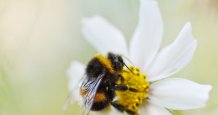
Streetwise bees cut corners to find food
Bumblebees waste no time enjoying the beauty of flowers – instead learning the bare minimum about where to land and find food, new research shows.

MOU will assess NHS readiness to treat addiction with ketamine-assisted therapy
A newly-signed agreement between the University of Exeter, Devon Partnership NHS Trust and Awakn Life Sciences lays down the foundations for assessing NHS readiness for ketamine-assisted psychotherapy.

Could outdoor experiences help people with schizophrenia or psychosis?
With World Mental Health Day on 10 October, researchers at University of Exeter are calling for participants to take part in two studies investigating whether outdoor experiences can help people with schizophrenia or psychosis.

Exeter in global top 100 for psychology
The University of Exeter has ranked in the top 100 in the world for psychology in the latest influential rankings.
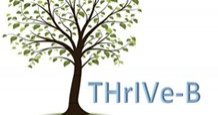
Trial tests new technique to manage mood swings within Bipolar Disorder
Researchers have conducted a new trial to identify how an existing psychological therapy can be adapted to help people cope with and manage frequent Bipolar mood swings.

New evidence of menopause in killer whales
Scientists have found new evidence of menopause in killer whales – raising fascinating questions about how and why it evolved.

Conservation an ‘oversight’ in zoo research
Conservation is being neglected compared to other areas of research when investigating animal social networks in zoos, new research has shown.

Zoo amphibians were on display while humans were locked away
While the UK was in lockdown, certain species of captive amphibians became more visible, a new study suggests.
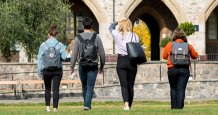
£3.7 million for Exeter to develop student wellbeing approach for higher education sector
New research by the University of Exeter and funded by UK Research and Innovation (UKRI) will evaluate and establish the best model to support student wellbeing across the university sector.

Childhood trauma can make people like morphine more
People who have experienced childhood trauma get a more pleasurable "high" from morphine, new research suggests.
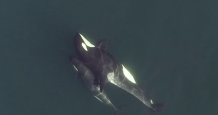
Drone footage reveals social secrets of killer whales
Killer whales have complex social structures including close "friendships", according to a new study that used drones to film the animals.

Junk food game helps people eat less and lose weight
Using a brain-training app helps people eat less junk food and lose weight, new research suggests.
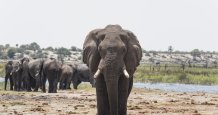
Scent trails could boost elephant conservation
Travelling elephants pay close attention to scent trails of dung and urine left by other elephants, new research shows.

Zoo YouTube videos prioritise entertainment over education
YouTube channels run by zoos focus on entertainment over education, according to a new study.
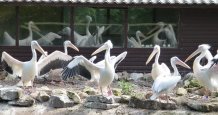
Friendly pelicans breed better
Captive pelicans that are free to choose their own friendships are more likely to breed successfully on repeated occasions, new research suggests.
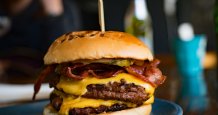
Some meat eaters disgusted by meat
Some meat eaters feel disgusted by meat, according to a new study.
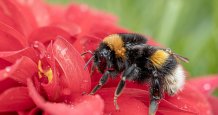
Large bumblebees start work earlier
Larger bumblebees are more likely to go out foraging in the low light of dawn, new research shows.

Women 'risk' grey hair to feel authentic
Many women "risk" allowing natural grey hair to show in order to feel authentic, a new study shows.

Fostered flamingos just as friendly
Flamingo chicks raised by foster parents from another flamingo species develop normally, scientists say.

Monkeys made more friends after hurricane
Monkeys formed more friendships and became more tolerant of each other after their island was devastated by a hurricane, new research shows.

A-maze-ing pheasants have two ways of navigating
Pheasants fall into two groups in terms of how they find their way around – and the different types prefer slightly different habitats, new research shows.

Changes in writing style provide clues to group identity
Small changes to people's writing style can reveal which social group they "belong to" at a given moment, new research shows.
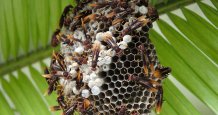
Tropical paper wasps babysit for neighbours
Wasps provide crucial support to their extended families by babysitting at neighbouring nests, according to new research by a team of biologists from the universities of Bristol, Exeter and UCL published today [15 February] in Nature Ecology and Evolution.
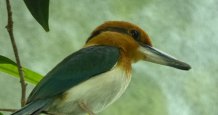
Birds living in natural habits can help inform captive care
Bird species that live in their natural habitats can help zoos learn how to manage those in captivity, according to a new review.

Preventing loneliness among children of depressed mothers may help prevent adolescent suicidality
Children of mothers experiencing depressive symptoms are more at risk, as adolescents, of experiencing suicidal thoughts and attempting suicide.
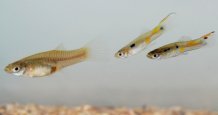
Guppies have varying levels of self-control
Just like humans trying to stick to New Year's resolutions, guppies have varying levels of self-control, a new study shows.
